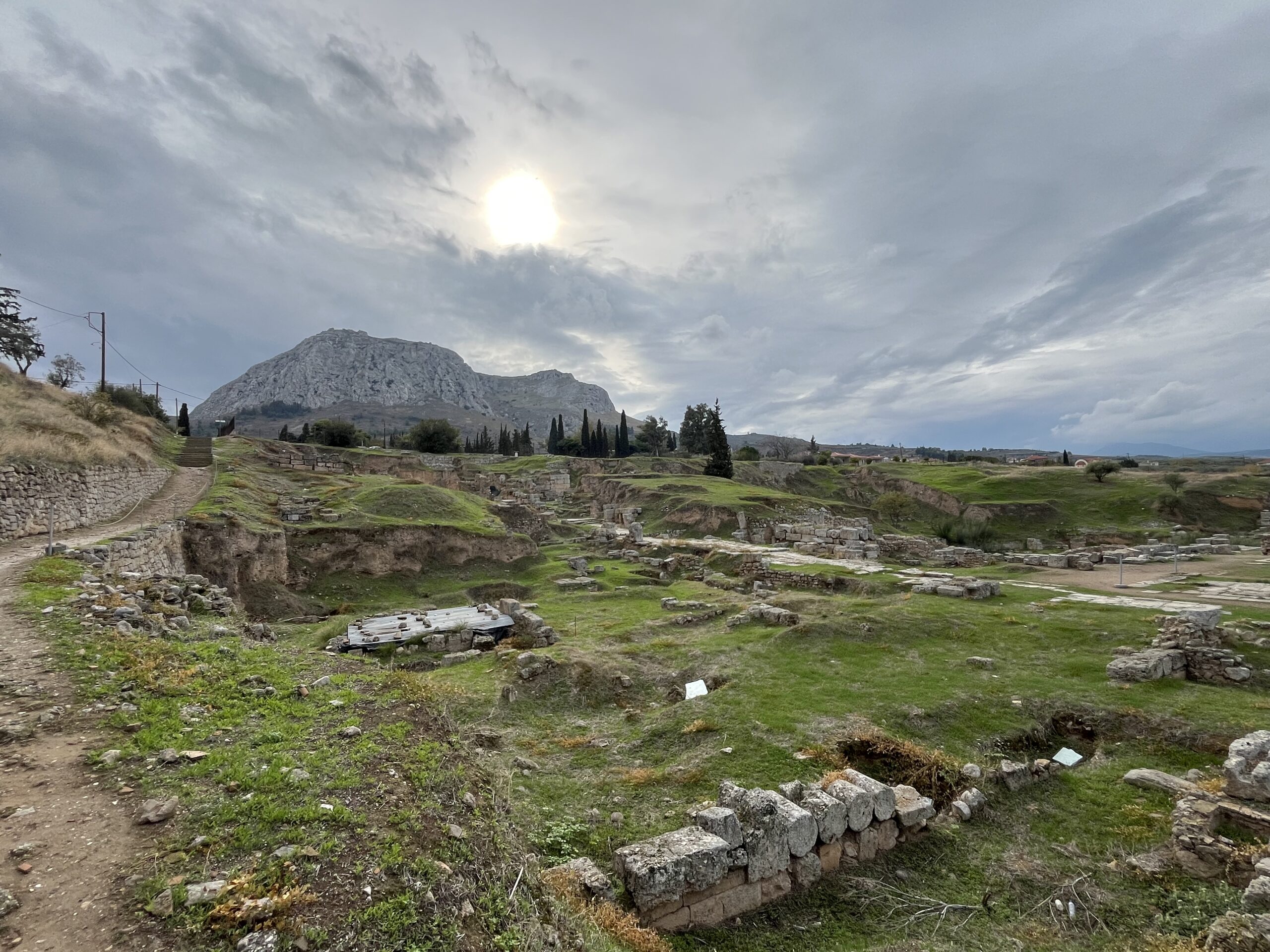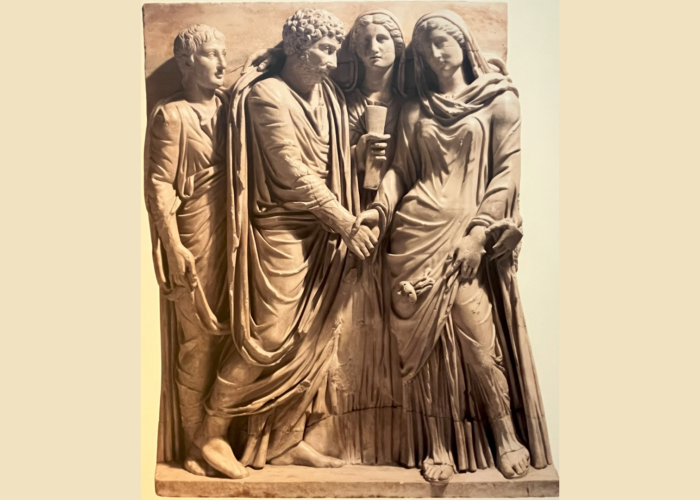The Apostle Paul’s instructions in 1 Corinthians 14 address some of the more puzzling aspects of early Christian gatherings in Corinth—especially the roles of tongues and prophecy. Paul’s concern centres on how speech in the community could either build up or alienate those present. However, one of the more debated sections of the chapter is 1 Cor 14:20–25, which seems to contain an internal contradiction in Paul’s expectations.
My essay on 1 Corinthians 14:20–25 has recently been published as part of an edited volume, Paul in His Jewish and Graeco-Roman Context: Theological, Ecclesial, Social, and Political Perspectives, edited by Constantine R. Campbell and James R. Harrison. The essay is a more developed version of Chapter Four of my monograph Salvific Intentionality in 1 Corinthians and proposes a resolution to the apparent contradiction in Paul’s argument about tongues and prophecy.
What I Do Not Address
I don’t provide a precise definition of prophecy, nor do I tackle what Corinthian tongues were. They remain a mystery to me, and exploring their full meaning is beyond the purpose of the essay, which is focussed on resolving an apparent contradiction in Paul’s argument. However, we can glean the following from across 1 Corinthians 14:
Prophecy corresponds with an ethic of love (14:1) and serves as an intelligible speech-mode (14:9, 19) directed towards the edification, encouragement, and comfort of others (14:3).
Tongues refers to a mysterious speech-mode (14:2), corresponding with one’s own spirit (14:14) that, given their orientation towards God (14:2), provides benefit only to oneself (14:4), and alienates others in the gathering (14:11). Public Tongues are acceptable when translated (14:5, 13, 27, 40), but this very act of translation transforms this mysterious speech into something intelligible, making it, in my view, analogous to prophecy.
The (Apparent) Contradiction
According to 1 Cor 14:22:
Tongues are a sign not for believers but for unbelievers, and
prophecy is not for unbelievers but for believers.
But then, in 1 Cor 14:23–25, Paul seemingly gives the very opposite example:
The uninformed or unbelievers enter church, observe Corinthian tongues, and think the speakers are crazy.
Unbelievers or uninformed people enter church, hear Corinthian prophecy, and experience conversion.
This is a long-standing conundrum, and there is no scholarly consensus on the internal logic of Paul’s argument. The main proposals include:
- First Corinthians 14:22 reflects a rhetorical question from Paul’s Corinthian opponents, which he cites and then refutes (14:23–25).
- The effects of tongues/prophecy upon unbelievers (in 1 Cor 14:23–25) fulfils the Isaiah passage quoted in 14:21 and serves as an illustration of Paul’s assertion in 14:22.
- Prophecy completes the salvific work that tongues can only initiate.
- Paul’s rhetoric may simply overstate the matter.
My Suggestion
I argue that Paul uses the terms most often translated as unbelievers and believers differently in 1 Cor 14:22 than in 14:23–25. The key is his citation of Isa 28:11–12 in 1 Cor 14:21, which sets up a covenantal framework for understanding the church. The Assyrian tongues from Isaiah’s day constituted a divine (response-seeking) warning to faithless Judah, while Isaiah’s prophetic speech invited Judah into an authentic faithful identity. Likewise, Corinthian tongues are an indication of childishness (1 Cor 14:20) and faithlessness. Thus, 14:22 means:
Tongues are the speech-mode of faithless Judah/Corinth;
Prophecy is the speech-mode of faithful Judah/Corinth.
In other words, 1 Cor 14:22 reflects an internal distinction between the faithless and the faithful. Hence the name of my essay is An Intra-Ecclesial Reading of οἱ πιστεύοντες [oi pisteuontes] and οἱ ἄπιστοι [oi apistoi] in 1 Corinthians 14:22.
Paul reinforces this principle by appealing to two scenarios. In the first, the uninformed and outside unbelievers enter the gathering and are repelled by Corinthian tongues. This is consistent with tongues being the speech-mode of faithless Corinth. In the second, the same people-types hear prophecy, and are converted. This is both an indication and effect of faithful Corinth.
My Translation of 1 Cor 14:20–25
“Brother and sisters, do not be childish in your thinking, but as to evil be infants, and in your understanding be mature. In the Law it is written: ‘By foreign languages and the lips of others I will speak to this people, and not even then will they listen to me,’ says the Lord. Therefore, tongues are a sign, not of the faithful, but of the faithless; prophecy, however, is a sign not of the faithless but of the faithful. Then if the whole church gathers and everyone speaks in tongues, and those you deem ‘ungifted’ or unbelievers enter, will they not say: ‘You are out of your mind?’ But if everyone is prophesying and an unbeliever or ‘ungifted’ person enters, he or she is convicted by all, judged by all—the secrets of his or her heart become known—and so, falling on his or her face, he or she will worship God, proclaiming, ‘God is truly among you!'”
Implications for Today
Whatever tongues were—and Paul likely shared in the experience (1 Cor 14:18)—they were not intended for public consumption: “In the church I would rather speak five intelligible words to instruct others than ten thousand words in a tongue” (14:19 NIV). In Corinth, tongues seemed to have been a way to show off in public and exclude others. Paul proposes a better way: “Follow the way of love and eagerly desire gifts of the Spirit, especially prophesy” (14:1 NIV).
Why prophecy? Because “the one who prophesies speaks to people for their strengthening, encouraging and comfort” (1 Cor 14:3 NIV). That is a mark of maturity and faithfulness. Paul’s concern in Corinth was that speech reflect faithfulness rather than unfaithfulness—that words reveal God’s message rather than obscure it.
What makes a gift spiritual is the extent to which it serves the salvific welfare of others. Spiritual gifts, therefore, are motivated by love, build up believers in their faith, and bring outsiders to know Christ.
The feature image is my own taken in 2024 during a visit to Ancient Corinth. This East Theatre Street excavations have been proposed as a potential domestic space for first-century Christian gatherings.



